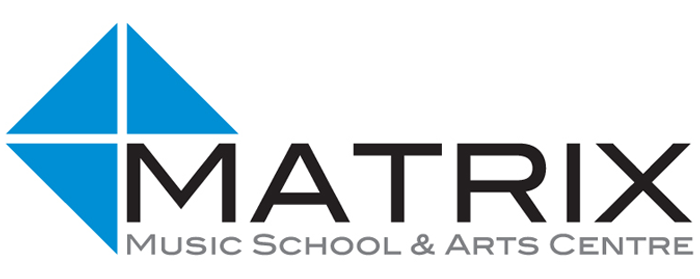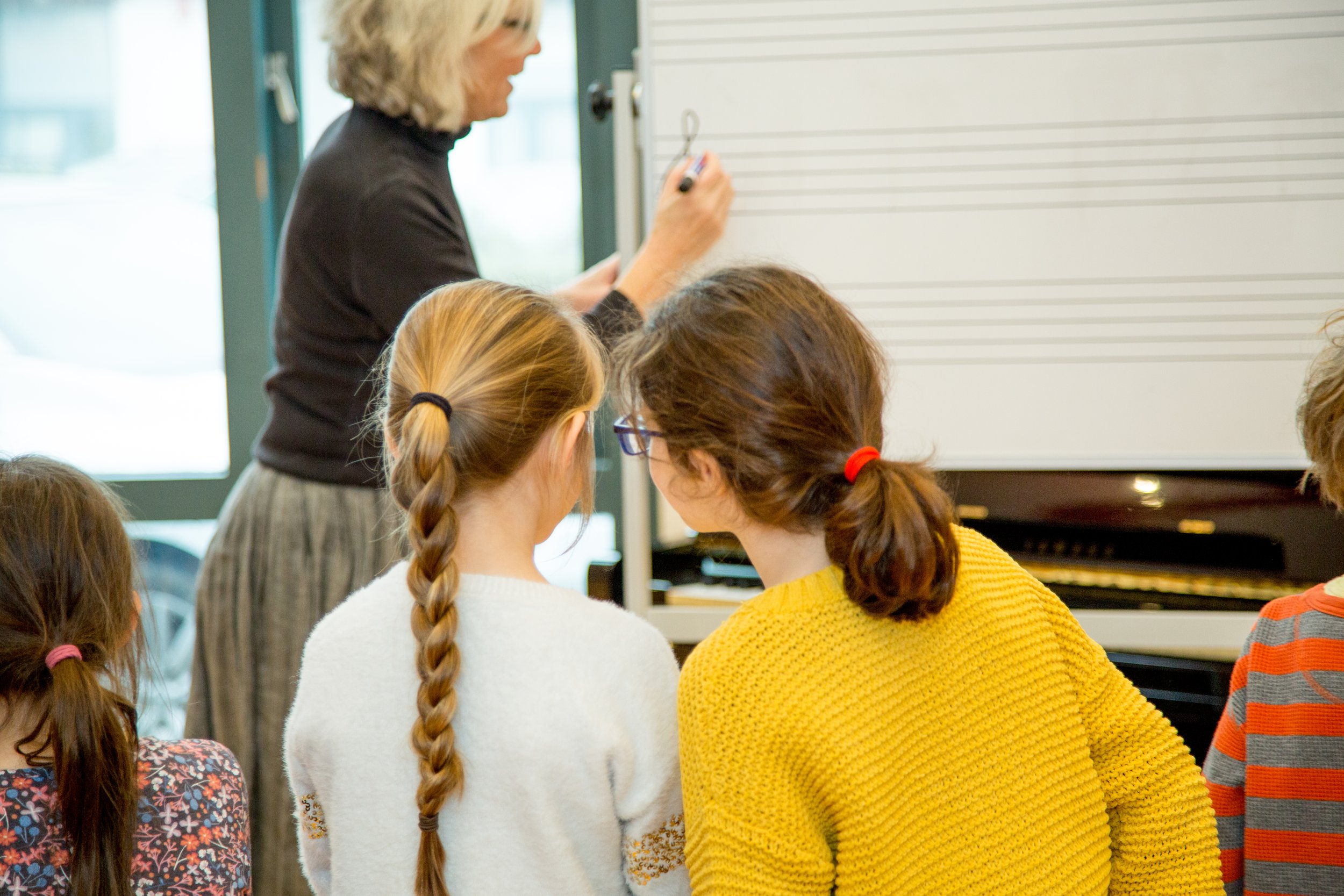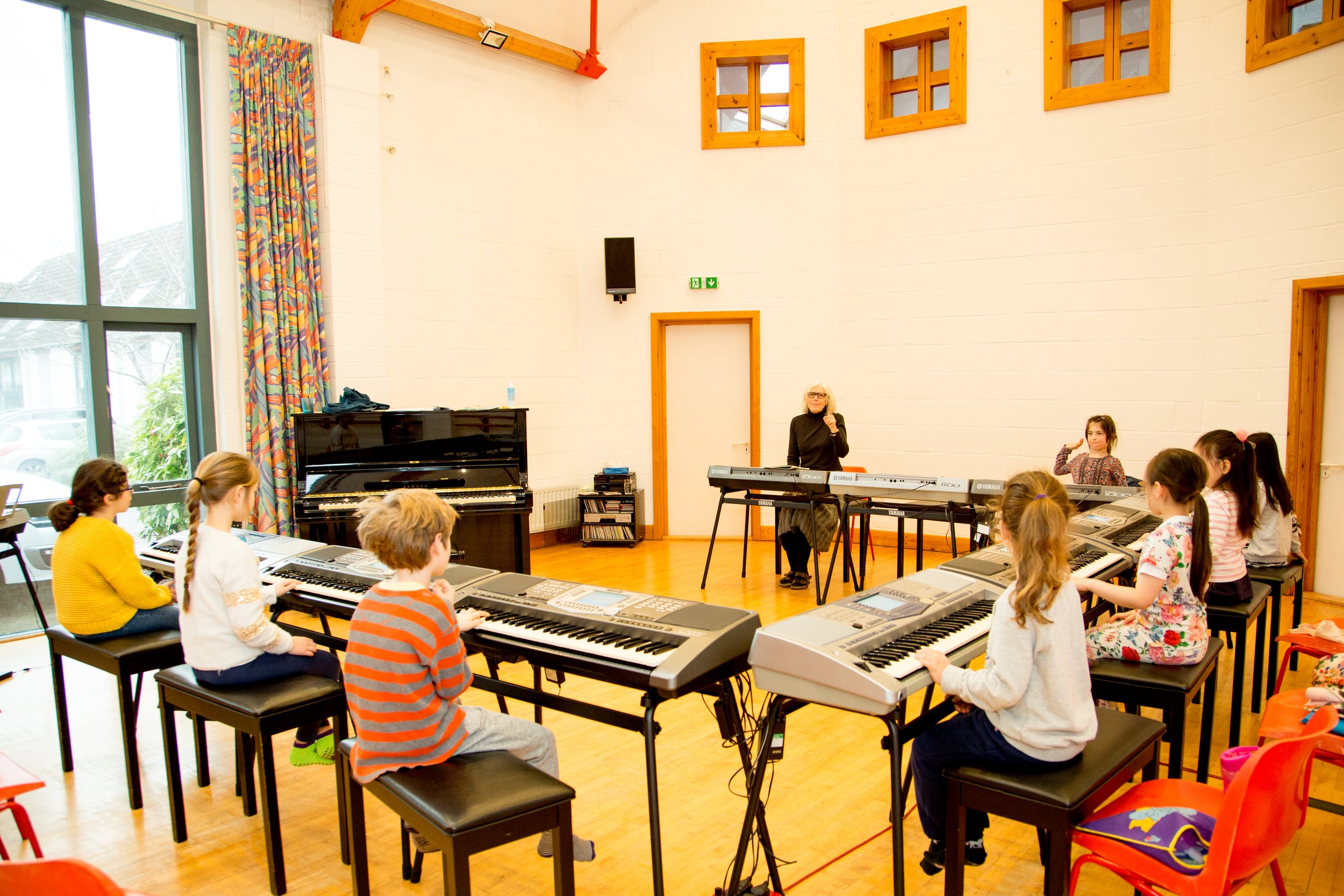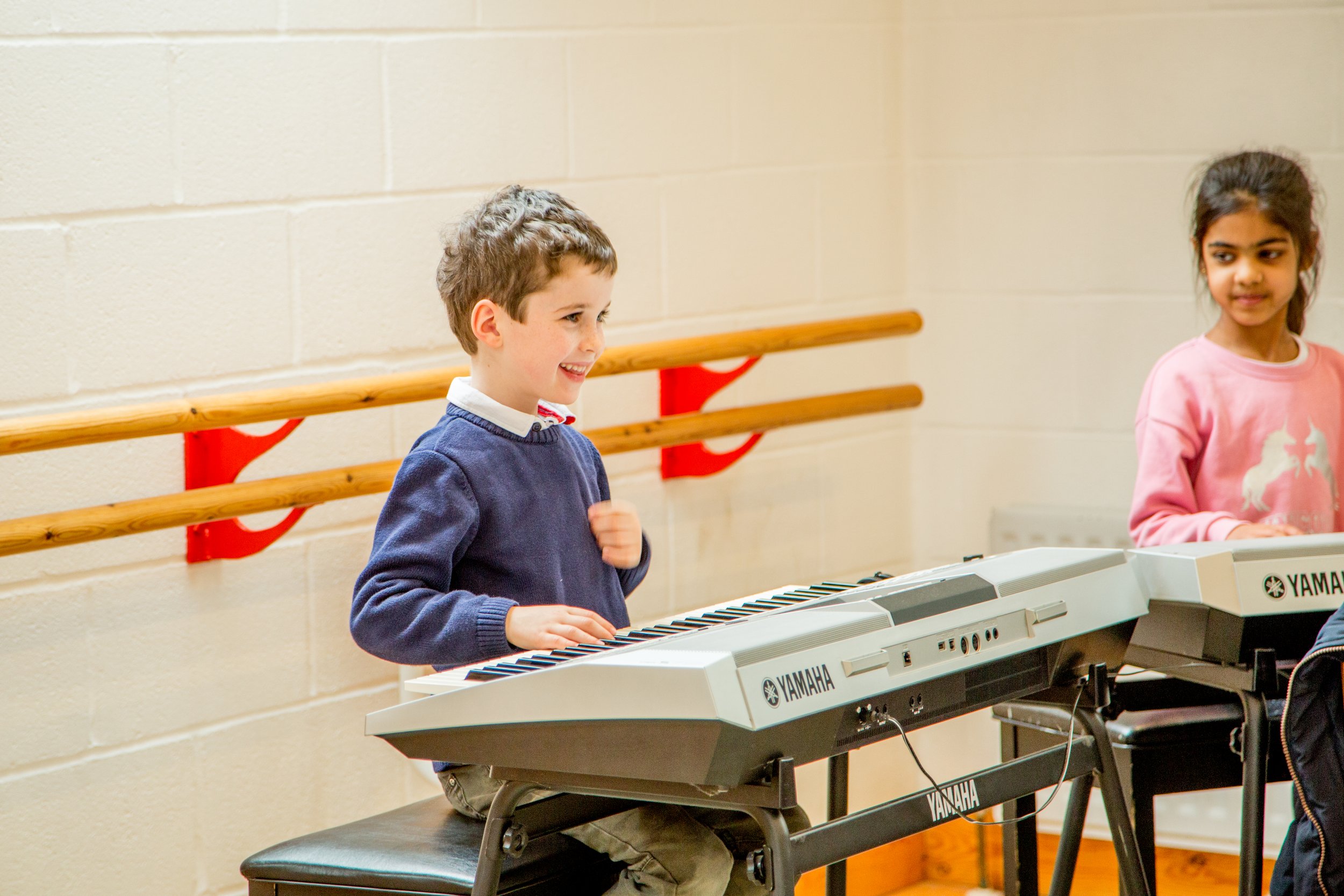Junior Extension Course
For children who have completed either the Junior Music Course and Junior Fundamental Course.
The Junior Extension Course continues with the varied curriculum, adding new subjects including ensemble playing, improvisation and composition. The group setting continues to be very important: learning from friends is a very powerful way to learn!
This short video filmed at Matrix Arts Centre gives more information about the Junior Extension Course (JXC).
Overview
The Junior Extension Course applies the knowledge learnt in the previous courses creatively. It is when parents see their children blossom into independent and creative young musicians!
Yamaha’s music education system emphasises ‘timely education’ (i.e. developmentally appropriate) and so this extension course uses a different approach. For example, we still predominantly use our ears at the start of the course, and notation gradually plays a bigger role as the course unfolds. By the second year of the course, children start to experience learning pieces using their eyes before their ears.
Students study a whole range of subjects: repertoire, lyric singing, solfege singing, keyboard harmony exercises, improvisation, composition, theory, and ensemble playing.
Children usually attend JXC lessons without parents, although parents still play an important role. Teachers offer ‘open lessons’ regularly in order for parents to stay in touch.
This comprehensive approach helps develop an all-round musician that they share with their friends - a very motivating experience!
-
Children who have completed the Junior Music Course (4 and 5 year olds course) or the Junior Fundamental Course (6 and 7 year olds course)
-
-
60 minutes (includes class changeover)
-
Up to 10
-
There are four sets of materials over the two-year course. Each set contains a Repertoire book and a Solfege & Ensemble book, with access to the music via Yamaha’s streaming service. Each book lasts 6 months.
-
Class times may change when moving into this course. We give lots of notice if this is the case
Further information
-
Parents are required for the last 10 minutes of every lesson to keep in touch with the class and see what is written for homework.
Although we encourage students’ independence in the JXC, parents still play a vital supportive role. The level of support you need to give will depend on your child, of course, but children are likely to need you to encourage regular practice sessions, check they’ve done everything on their practise list, find and put on the music to listen to, and of course - give plenty of encouragement! We would ask you not to teach them the repertoire pieces at home ahead of the class as this means they will miss out on our learning process. The course is much more than just playing the right notes!
From time to time you can also - with a light touch(!) - help them to practise effectively. The teacher will increasingly give tips in lessons about not simply playing a piece from the beginning to the end.
As ever, please do not react to mistakes or give information about which notes to play. Encourage your child to keep listening to the music - this is vital! - and also to keep playing their favourite pieces. You can find more advice about practising on the back pages of each of the repertoire books.
Please keep in communication with your teacher – we’re here to help you get the most out of the course.
Please do not book individual piano lessons in addition to the group lessons – one to one lessons will be offered towards the end of the second year of this course and are arranged with our piano teachers. It is not beneficial to add piano lessons before this point as the first year of JXC aims to develop the independence that makes individual lessons more productive.
-
The minimum requirement by this course is that keyboards have touch sensitivity - most modern keyboards have this
We start asking you to think about acquiring a piano (acoustic or digital) during the next couple of years
There are models to suit all budgets for keyboards and pianos - new or second hand is fine (pianos should meet the specifications listed in the ‘instrument requirements at home’ on the Junior Advanced Course page)
Very importantly: please put the instrument in an accessible and inviting place at home - it makes a big difference
You will need a device to stream the audio recordings - regular listening is crucial to the children’s practice
Please make sure that the children are listening to a high quality of sound at home (phone speakers are not satisfactory)
-
Students have the opportunity to celebrate the end of the JXC by participating in Yamaha Grade 9!
-
We stage several concerts each year: every child has the opportunity to take part in an annual ensemble concert. Younger students are also invited to attend the older children's concerts: look out for ensemble, composition, and performers' platform concerts - all of which can be very inspiring.
Yamaha celebrates the work of the young composers with Junior Original Concerts: Matrix Arts Centre student composers often represent the school at both national and international levels.
You can listen to some of these performances on our news and events or on our social media.
-
-
Students move into the Junior Advanced Course (2 years) where piano lessons are introduced alongside the group lessons each week
The Advanced Extension Course (3 years) continues with a more academic focus as well as the practical musicanship subjects - including enjoying advanced ensembles
After this, the students graduate from the Yamaha Music School! We invite YMS graduates to join in ensembles in our annual concert every year and many continue their piano lessons with us until they finish school. We love hearing what our YMS graduates are doing - you can see some of their stories on our social media
Course progression
You can join our courses at any time between the ages of 2 and 7
New courses start every April and November
“Since we moved out of the area we are struggling to find anything remotely near the standard of learning they were getting with you. We were always very impressed with the lessons the girls had with you at Matrix Arts Centre, but we didn’t realise quite how much above the rest you were. We are grateful for the good foundation they received with you, thanks again!”












